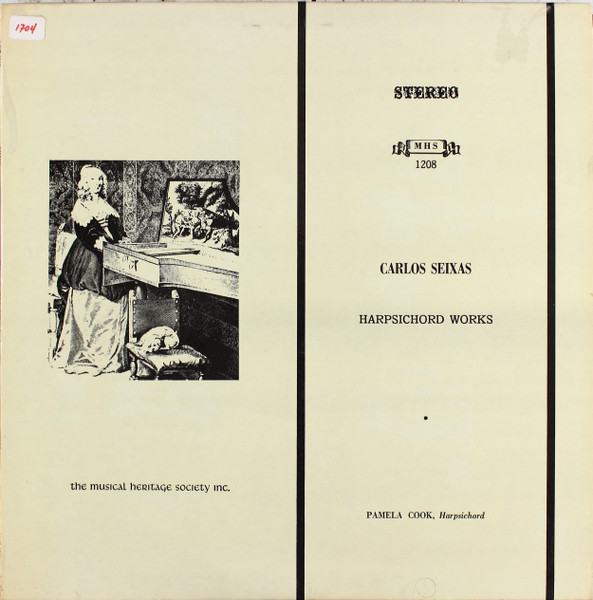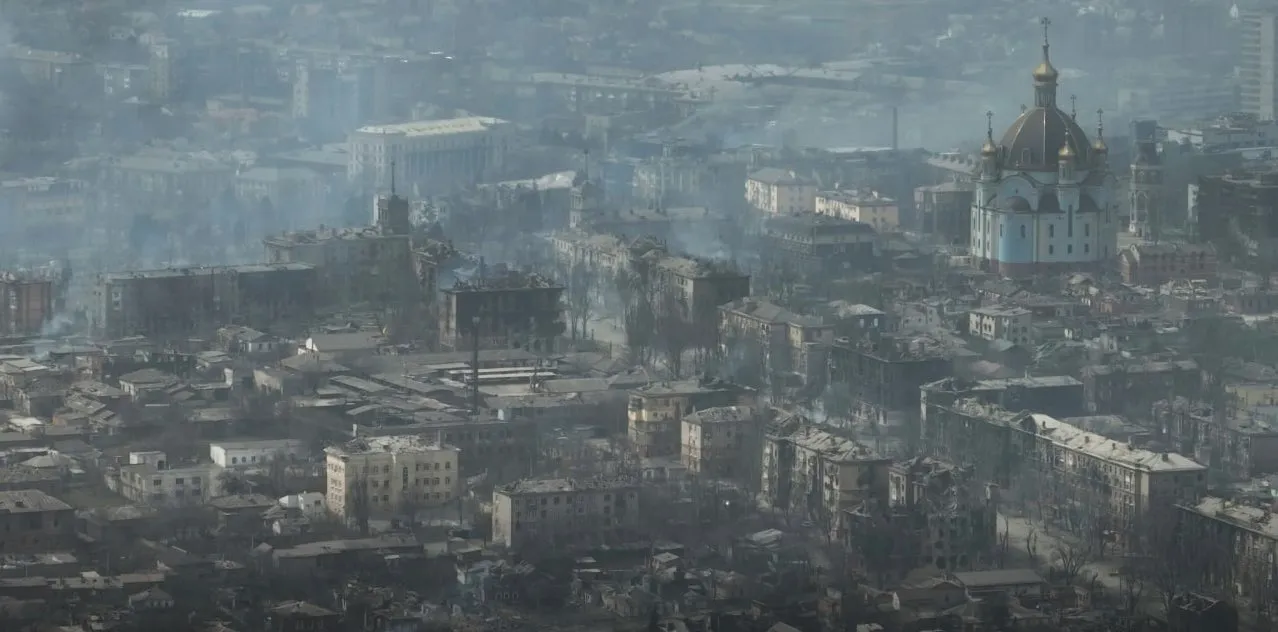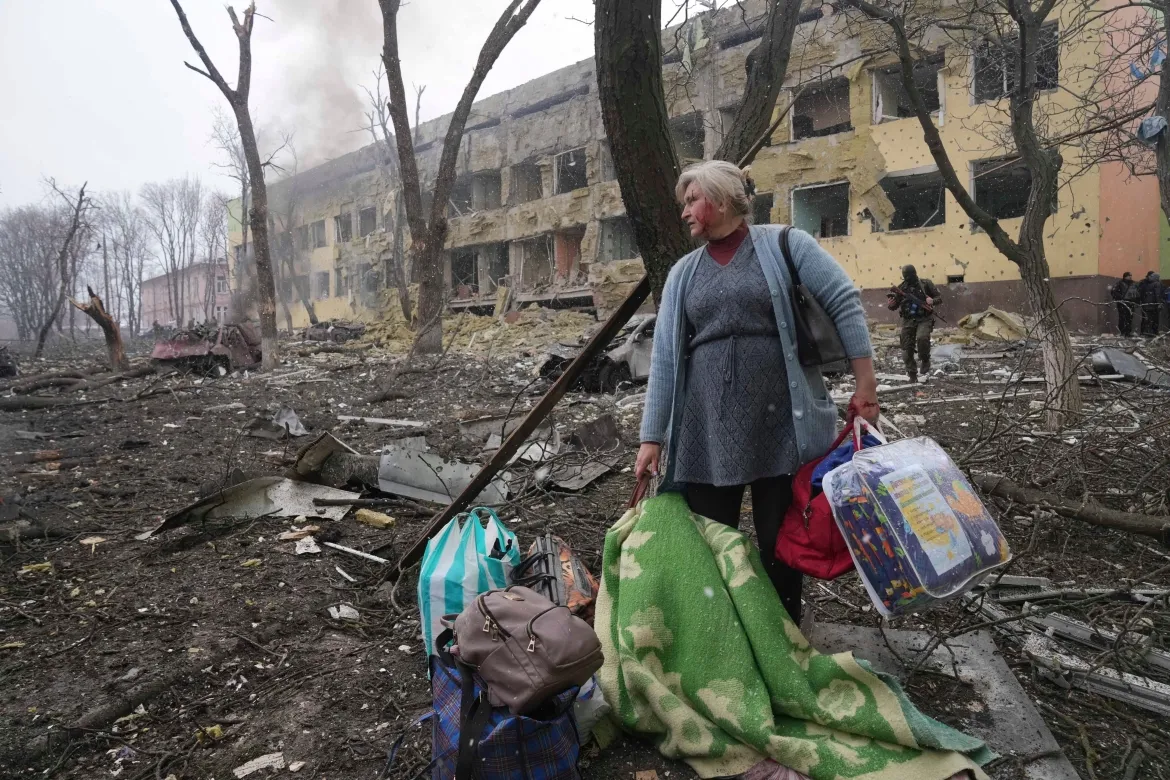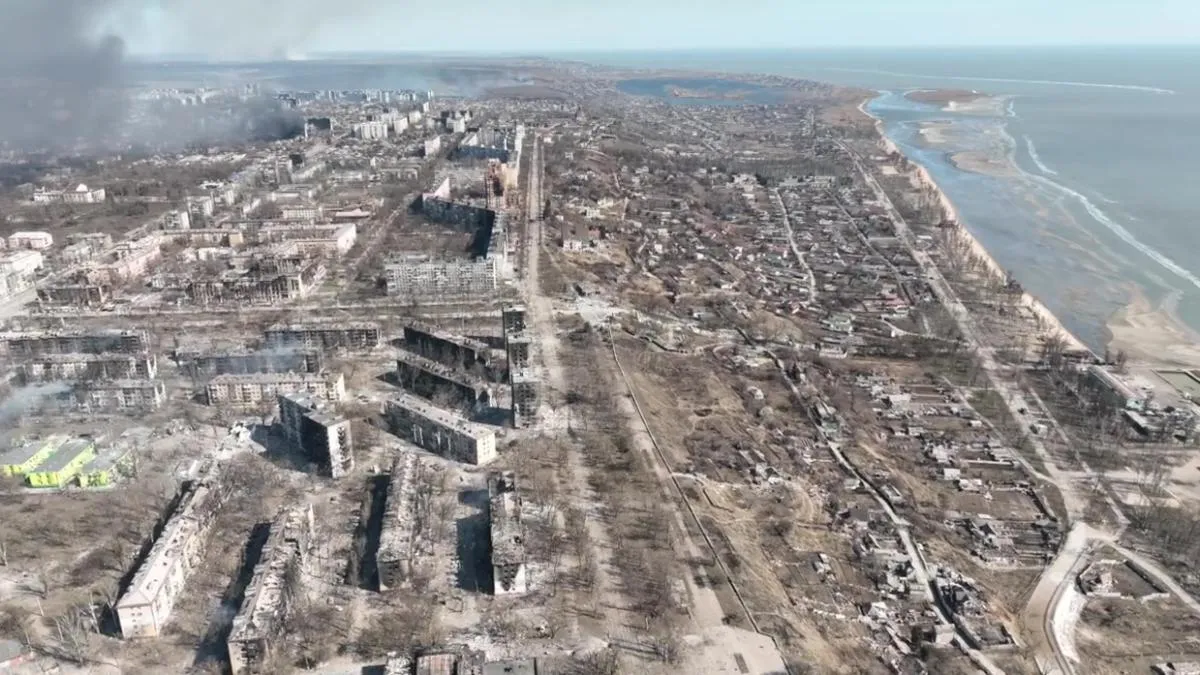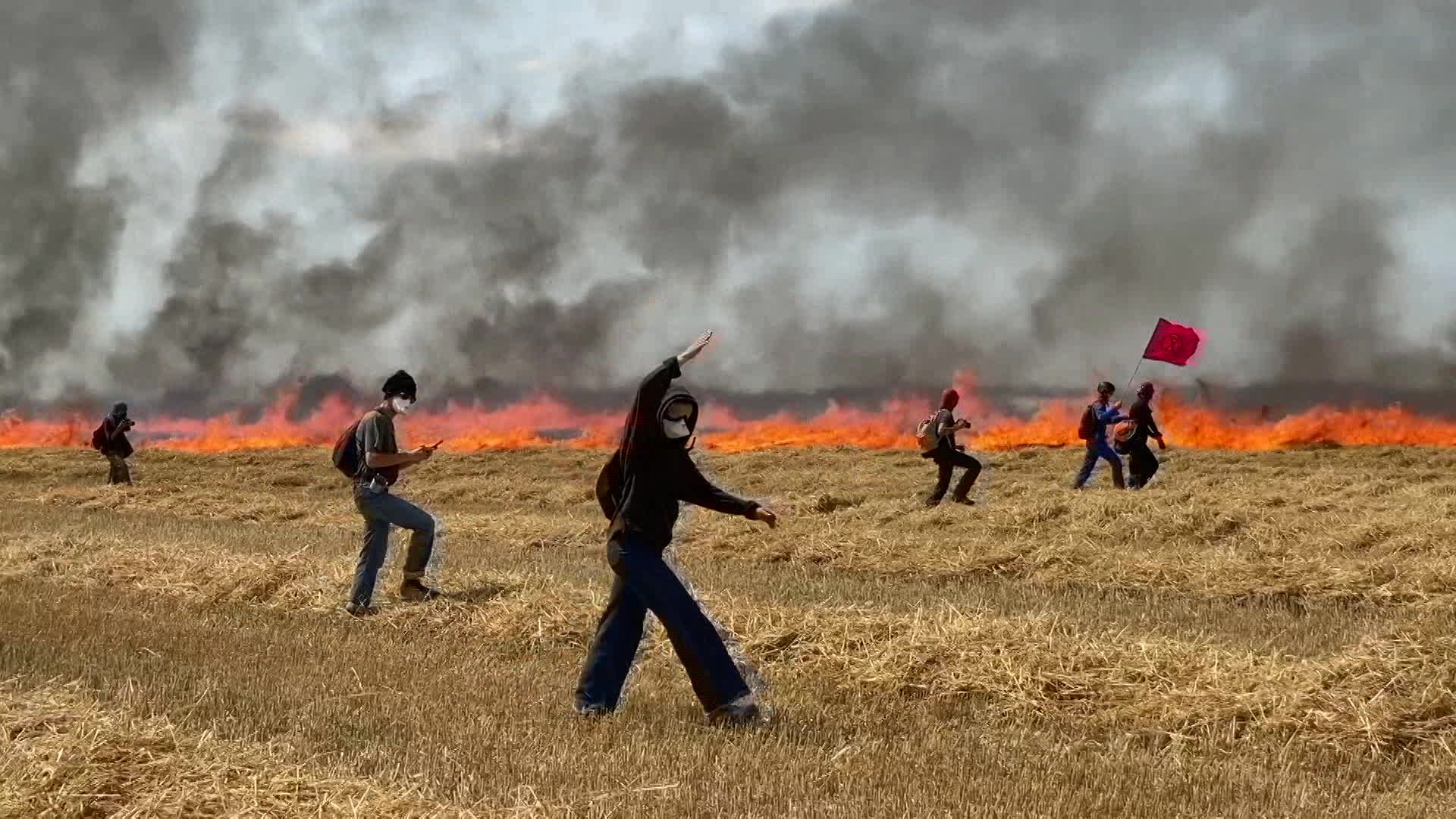
The constitution of the Fifth French Republic is designed to produce definite legislative majorities led by a strong executive. There have been a few historical examples of “cohabitations” where the sitting President's party is rejected in a legislative election and he is forced to share domestic political power with a Prime Minister that he, by democratic tradition, is induced to name despite himself. The current situation in France is straining that constitutional system, and raises two questions: can the country be governed—and by whom?
After the French legislative elections ended on July 7th with the New Popular Front (NFP) winning a relative majority in the National Assembly of 180 seats, president Emmanuel Macron was silent. He had called the snap elections with a relative majority of 245 out of 577 total seats; after his gamble, he lost 86. No political party, bloc, or alliance was left with anywhere near the 289 deputies needed for a ruling majority. Three days later, Macron published an open letter claiming that “nobody won”, and announced his intention to attempt a coalition government instead of following democratic norms and recognizing the NFP's victory. A new page in the history of authoritarian neoliberalism was turned: the extreme-centrist ideology of “neither left nor right” metastasized into electoral denial.
The next day, Sophie Binet, head of the General Confederation of Labor (CGT), warned that the ongoing political “crisis” caused by Macron called for a “permanent mobilization”. According to her, the far-right was defeated, yes, but “waits in ambush”. If Macron succeeds in his attempt to “reverse the results of the election” and continue to advance his agenda, then the far-right would be guaranteed a “clean sweep” in the 2027 presidential elections. For Binet, these two threats to French democracy represented by Macron and Le Pen must be overcome by a “rupture” with the neoliberal status quo. The “incredible feat” of the NFP victory must result in real change for the good of the workers today and the defeat of the neofascists tomorrow.
The next day, Jean-Luc Mélenchon live-streamed an hour-and-a-half address to members of France Unbowed (LFI). He began with a reprise of why and how his movement began: opposition to the European Union's neoliberalizing power and a big-tent organization of organizers. The LFI is, for him, not a place to debate abstract theory but “study the present moment” and promote “those distinguished by their actions”. Mélenchon argued that the victory of the NFP is due to popular self-organization and vindicates the strategy of the LFI to organize the disorganized and get out of the vote of habitual non-voters. For him, a critical element in the success of the NFP was the tireless work of activists “in the political movement against the genocide in Gaza, [for whom] the exploitation, domination, humiliation, bombardment, rapine, and murder testifies to and mirrors their own situation.” The effort of pro-Palestine protesters bridged spectacular indignation to political self-activity. Mélenchon went on to stress that the election results, even the Republic itself, must be defended: “we are a people born from a revolution, and we continue by successive revolutions”.

Every day the bourgeois press has sought any means available to break the Popular Front. The most obscene example was recently broadcast on French public radio when Green Party (EELV) leader, Marine Tondelier, was expressing her condolences with the victim of the botched assassination of Donald Trump. As she brought her remarks to a close, she raised her concern for the threats of violence made by the French far-right, when one of the talking heads replied with a “question” about the risk posed by the LFI. To her credit, Tondelier clearly condemned the banalization of the far-right and false equivalence of so-called “extremes”. The corporate press has been doing its damnedest to rehabilitate the party of the Waffen SS and demonize the movement for social solidarity. And every day the media reminds us of the inability of NFP party leaders to come to a consensus regarding who they will propose to be Prime Minister.
The negotiations over the nomination are the site of a power struggle between the two strongest forces in the NFP: the Socialist Party (PS) and the LFI. These forces represent a decades-long conflict between self-professed reformist social-democrats like François Hollande and pro-revolutionary Marxists like Jean-Luc Mélenchon. After several days of negotiations, the French Communist Party (PCF) proposed Huguette Bello, an independent communist politician from Réunion island with decades of parliamentary experience and good relations with many in the NFP. The LFI promoted her candidacy and the EELV were receptive to it, but the PS flatly refused. Bello then stepped aside and the PS proposed Laurence Tubiana, an architect of the Paris Climate Accords. Tubiana, considered amenable to collaboration with parts of Macron's forces, signed her name to a call for the NFP to compromise its program. The LFI flatly refused her candidacy, and changed the subject of negotiation from who should be named Prime Minister to who should serve as President of the Assembly. The NFP parties agreed in a matter of days to offer the post to veteran PCF deputy André Chassaigne.
The National Assembly met at the Bourbon Palace in Paris on July 18th for its opening day. The CGT rallied for nationwide protests the same day to put the parliament “under surveillance” and meet our demands: cancel Macron's raising of the retirement age, increase the minimum wage, &c. As the deputies gathered together to elect the President of their chamber, LFI representatives refused to shake hands with members of the RN. In the first round of ballots, Chassaigne led with a clear majority of 200 votes, with the RN candidate following with 142 and Macron's choice, Yaël Braun-Pivet in third with 124, and other candidates declining from there. Over the first two rounds of elections, none got a clear majority. In the third round, ballot-stuffing caused a re-vote. Finally, a pact between members of the right opposition and the outgoing Macron government allowed a narrow victory of only 13 votes for Braun-Pivet to overcome Chassaigne—a margin decided by the decision of 17 ministers to ignore the constitutional prohibition of their participation. This breach of separation of powers has deputies from the NFP pursuing legal recourse.
The next parliamentary elections concerned various bureau positions and was marked by a double confusion: first, the right-wing Republican Party (LR) split between the infamous Éric Ciotti and Laurent Wauquiez over the question of whether or not to ally with the RN. Wauquiez's faction voted in support of Braun-Pivet, but then claimed to be an independent opposition. Macron's splintering forces had sought to bring the Wauquiez faction into coalition government with them to no avail. And as the neoliberals went off to sleep, the NFP surprised with a sweep of the majority of bureau seats: leaving Braun-Pivet in a parliamentary cohabitation with them and depriving the RN of any bureau positions, a fact that the centrist captain deplored.
The political landscape has definitively shifted. The left remains united in the NFP, despite their quarrels over who to propose as PM. In the end, they have no power to actually name the PM—that's up to Macron, and he has so far refused to follow parliamentary custom and ask the NFP for their proposal. The center is splitting: Gabriel Attal, the outgoing PM, seeks both a center-left coalition and an escape from Macron's vortex. Emmanuel himself is the proverbial emperor with no clothes, but still clutches presidential powers. Édouard Phillipe, Macron's old PM, and Gérald Darmanin, Macron's top cop, are competing to lead the center-right. The once-Gaullist LR is getting a divorce. The RN waits in the wings, resentful as ever.
As French democracy heaves, the Olympic Games are to begin July 26th on the Seine and at the Trocadero. Macron called, ironically enough, for a “pause on politics” for the Games. He has turned Paris into a vast panopticon managed by QR-code passes and miles of barriers. There is a real risk of social unrest: strikes, for example, could disrupt the transportation and energy sectors critical for the Games. An agreement was made earlier in the year for a bonus during the Olympics to appease organized labor: in the case of the railway workers, 95 euros per day worked and a maximum of 1,900 total during the Games. July and August are also the months of vacation that French workers won in the original Popular Front, and it is possible that folks might prefer to go to the beach rather than march in the streets. In any case, civil society is already planning events for the beginning of the school year. It is unclear whether Macron's antidemocratic maneuvers will exhaust the social movement propelling the New Popular Front or provoke it to fight.
Beneath the glittering surface prepared for the world to admire, the ranks of the poor are swelling: single mothers, families with more than two children, the unemployed—14.4% of the population live in poverty according to official statistics. That's 1,216 euros per month for a single person. These poor of France can maybe take a day-trip to the beach in the summer heat. Many will not relax at all, condemned to labor longer hours for more years as the social democrats and liberal-conservatives cut up the social compact. Will the poor forget that the NFP program calls to raise the minimum wage from 1,350 to 1,600 euros per month? Will the people sit idly by as those they elected come on live television to announce that the election has been “stolen” from them?

And far from the palaces of Paris, the Earth Uprisings (SDT) movement draws thousands to the countryside to protest, occupy, and dismantle ecocidal infrastructure. Supported internationally by green celebrities like Greta Thunberg and nationally by the NFP, the SDT was threatened by Darmanin last year with legal dissolution but won the case against the government with the aid of the Human Rights League (LDH) and Amnesty International. Their latest action at the Atlantic port of La Rochelle led to brutal repression, including gendarmes lighting fields on fire with their crowd control grenades. Thousands of gendarmes were mobilized to control the SDT, just as police forces from Qatar and soldiers from Poland arrive to reinforce the Olympics. For their part, the LDH continues the juridical campaign against the permanent state of exception.
France is in crisis, and more than a few consider the country to be “ungovernable”. No person, party, or coalition has the power to exert themselves without engaging in triangulation. Macron cannot call for new elections for at least a year. If during that time, even if only for a short period, the NFP formed a government, they could defy the rest of the Assembly to vote down popular demands: they have already submitted a law lowering the retirement age. Macron continues to deny his defeat and rule by decree, but eventually the outgoing government must be replaced. As the electeds attempt to hash out all the details, the people who mobilized to bring the NFP to electoral victory could decide that they have had enough—as one CGT leaflet put it, “yesterday the ballots spoke, tomorrow the streets will speak”.
Update 24/07/2024:
After publishing the above article, the New Popular Front requested that President Macron name the economist and feminist activist Lucie Castets to be Prime Minister. The President conceded that his faction had lost the election, but continued to insist that “nobody won”, rejecting Castets and the NFP's democratic mandate. Macron called for a “political pause” during the Olympics, and indicated he will attempt to form a new coalition government after the Games next month. If he does so, this will be the longest time an outgoing government has remained active in the history of the Fifth Republic and the first time a government will not be formed by those who won the most votes in the legislative election.




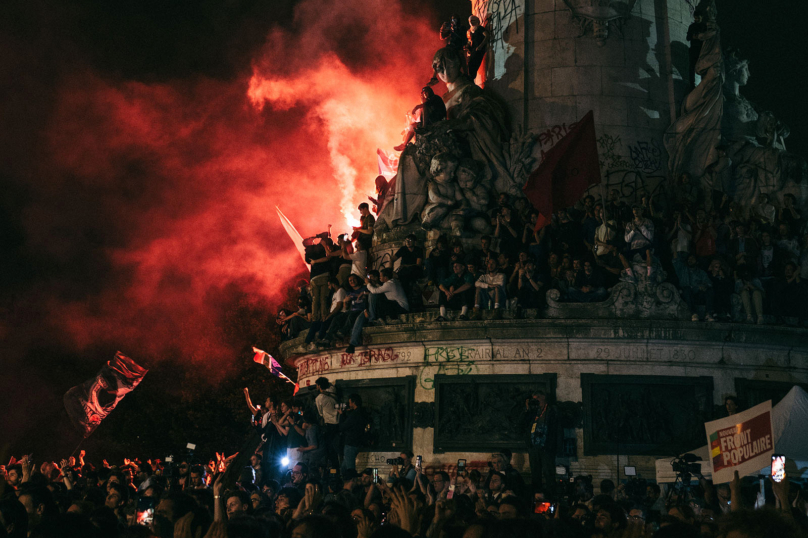

/regions/2024/07/08/img-4081-1-668b8864c1b44807969949.jpg)






